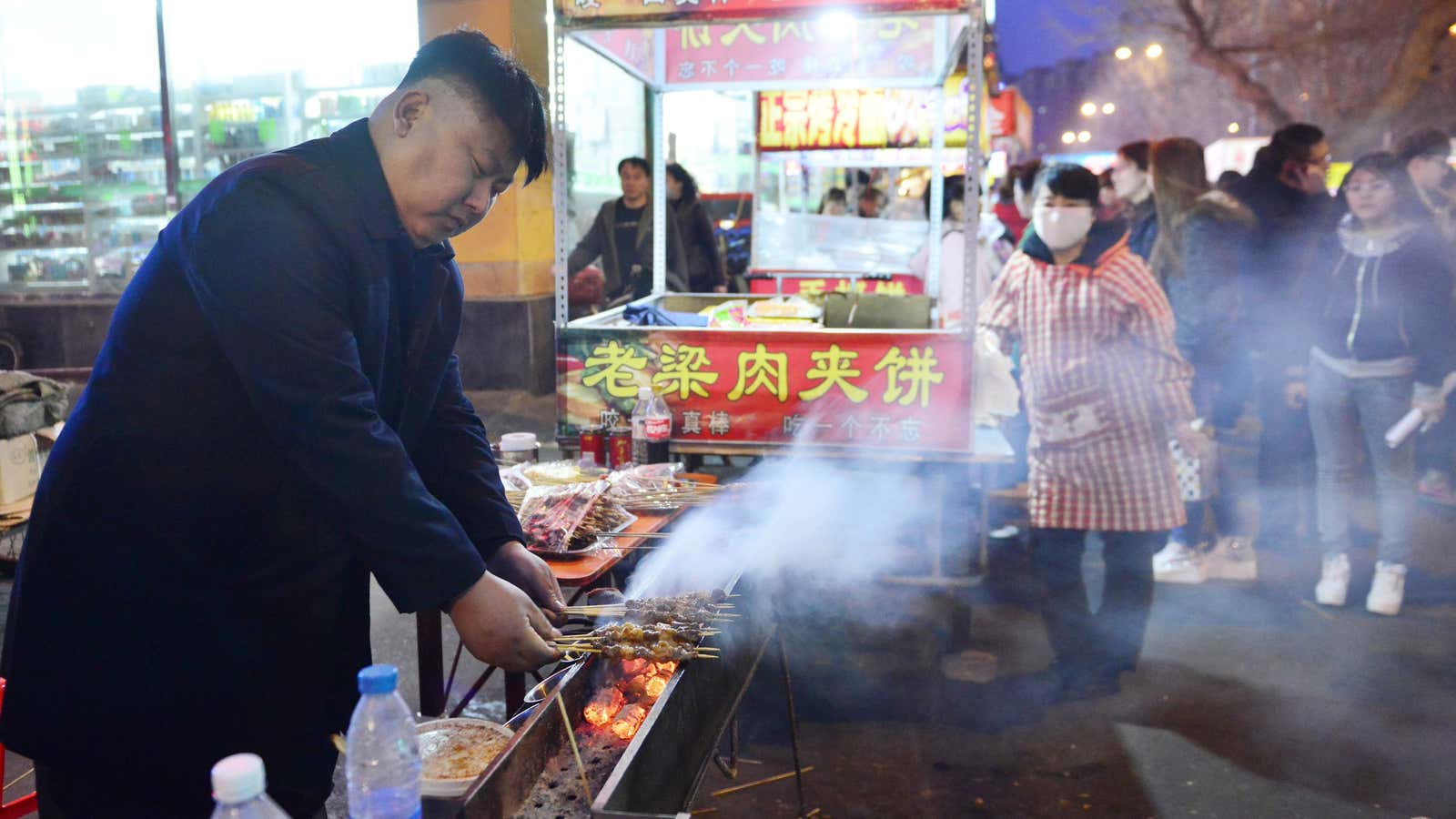Chinese consumers’ love for South Korean products from desserts to cosmetics inspired several local companies to provide similar offerings and adopt Korean-style branding (and even rather similar names). But as tensions between the two countries heat up over South Korea’s deployment of a US-built antimissile defense system, some Chinese companies are reconsidering the wisdom of that strategy.
Most prominently, China appears to be targeting the Korean conglomerate Lotte, which signed a land-swap deal last month with the Korean government to provide a site for the defense system, called Terminal High Altitude Area Defense (THAAD). Since signing the deal, Lotte has been fined over its advertising and has seen a large number of its Chinese supermarkets shut down for reasons like fire code violations. Leading up to the deployment, China had already been conducting a broad range of more than 40 retaliatory moves from July to early February, such as denying the visa applications of K-pop stars and canceling chartered flights to Korea.
THAAD has created a furor on the mainland because of fears that the antimissile system will be used to spy on China, as one pop singer warned in a ballad called “Chant of Love” that called on people to boycott products made by Lotte. Many of China’s netizens have vowed to swear off bothh Lotte and other Korean goods. With no sign of tensions easing up any soon, Korean-style food chains are doing an about-face and telling consumers they’re 100% Chinese.
- On March. 9, Xue Bing Yuan Su, a dessert brand that operates some 300 stores in China and whose name sounds a lot like that of Korean dessert chain Sulbing, announced (link in Chinese) that it was”a Chinese enterprise” that intended to “fully support China’s national security” amid the THAAD tumult. The company got its license registered in Shanghai in 2014 (link in Chinese), and applied for the related trademark right ahead of Sulbing, according to the Korea Times.
- On March. 8, Halla, a Beijing-based catering company famous for its Korean-style barbecue (and not related to Korean heavy industry firm Halla Group), released a statement (link in Chinese) that said Halla supports “Chinese national interest above everything.” The next day, Hannashan Korean Barbecue, a subsidiary, removed (link in Chinese) “Korean” from its WeChat account name. The company has also said that it “has never sold or used any products from Lotte and will never.” (But Halla’s website still offers a Korean-language option.)
- On March. 8, Quan Jincheng, another Korean-style barbecue restaurant, announced (link in Chinese) that it was a Chinese company that “loves the nation, loves the country and intends to contribute to China’s economy development.”
Some Chinese consumers have found it disappointing to find that companies they believed to be Korean are actually Chinese. “The only good thing amid this boycotting [of foreign companies] is that we now finally know Hannashan Korean barbecue did not come from Korea,” wrote (link in Chinese) Zhao Lezi on Weibo, a popular social media platform, “Companies pretend to be foreign…and it only takes one hit to reveal who you really are.”
